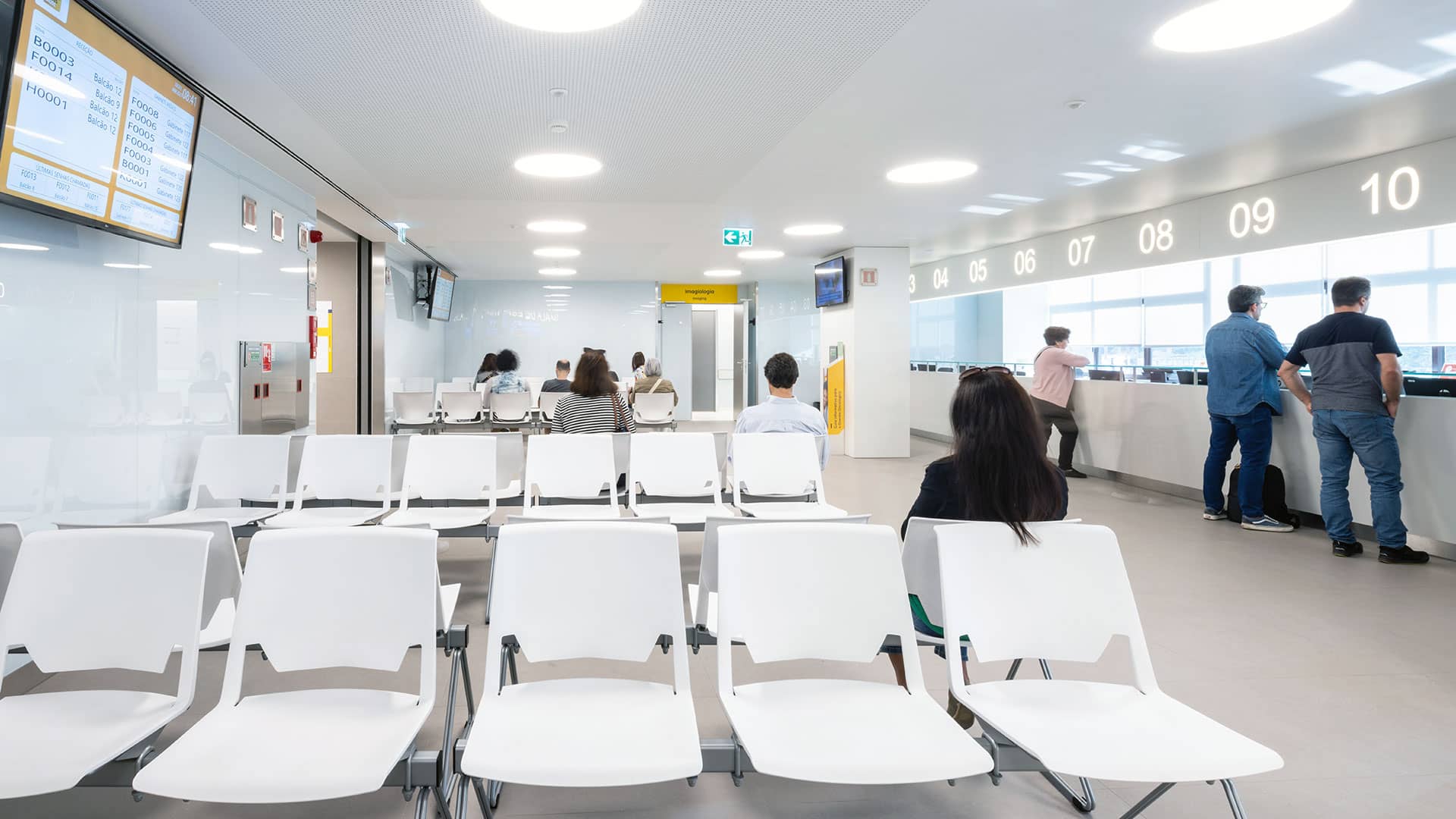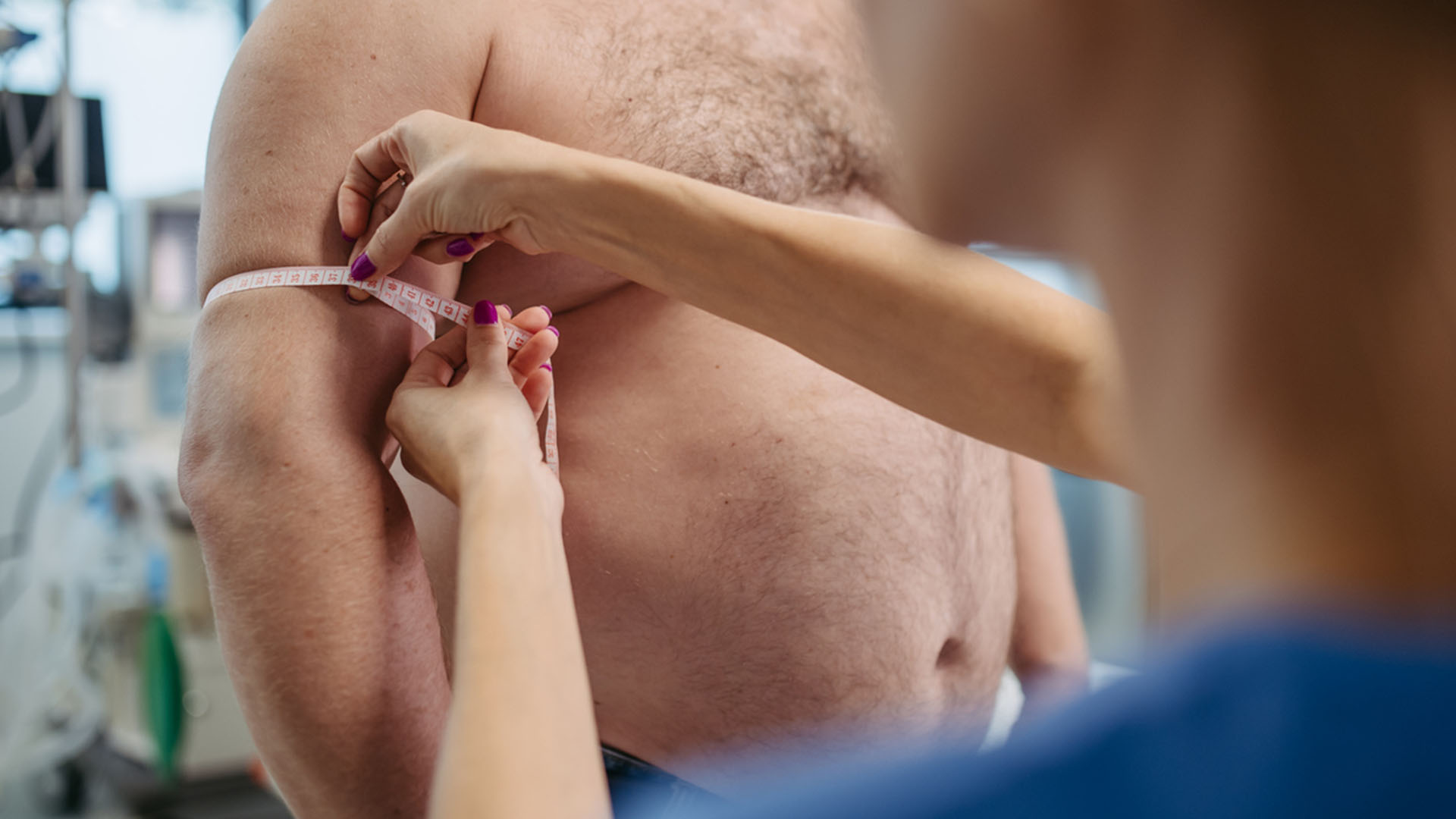A bulge in the groin area and pain, mainly impacting men - that's how inguinal hernia manifests. Discover the main signs and how to treat it.
In Portugal, it is estimated that the prevalence of inguinal hernia can reach 8% of the population. It primarily affects men, causing significant discomfort and pain, and if left untreated in a timely manner, it can lead to serious clinical consequences. Learn about the signs to watch out for and how it can be treated.
Inguinal Hernia: what is it?
Inguinal hernia is a protrusion that occurs in the groin area when a part of the intestine protrudes through a weakness in the abdominal muscles. Unlike bones and cartilage, abdominal muscles are very flexible due to the presence of elastin and collagen in their composition. This flexibility allows the passage of soft tissues, such as a portion of the intestine, leading to the occurrence of an inguinal hernia.
A protruding pouch is formed in the lower abdomen due to the pressure of the intestine against the abdominal wall, visible to the naked eye, causing significant discomfort and pain. The pouch tends to grow gradually, although the progression varies greatly from patient to patient. In some cases, inguinal hernias can occur simultaneously in both groins, referred to as bilateral inguinal hernia. When the hernia extends into the scrotum due to its size, it is called inguinoscrotal hernia.
The predominance of this problem in males is mainly due to the anatomical configuration of the male pelvis. The inguinal canal is more spacious in males, whereas in females it is almost vestigial, which serves as a protective factor against the occurrence of these hernias in the female gender.
What are the symptoms of inguinal hernia?
Inguinal hernia may not present symptoms and can be detected only during routine check-ups or examinations. However, in most cases, the symptoms are evident and painful. Let's list the main ones:
- Bulge or swelling in the groin area, which becomes more visible when the person exerts themselves.
- Sensation of pain or burning in the abdominal wall.
- Gurgling noises.
- Feeling of heaviness in the groin.
- Sensation of weakness.
- Discomfort and pain, especially when performing movements such as standing up, bending over, or lifting weight.
- Pain and increased volume in the testicular region in men - an indicator of intestine descending into the scrotum.
The diagnosis is made by the doctor through observation and palpation of the groin and abdominal wall. Usually, the doctor asks the patient to cough or exert pressure on the abdomen to see if the hernia becomes more prominent, helping to confirm the diagnosis. In some cases, an ultrasound or other complementary tests may be necessary.
What are the causes of inguinal hernia?
Not always is it possible to determine the apparent cause of an inguinal hernia. In some cases, the weakness of the abdominal wall is present from birth, which explains why this condition is common in children, especially when they have a family history of cystic fibrosis, hip dysplasia, and urethral abnormalities.
Other cases occur due to excessive and recurrent increase in intra-abdominal pressure (or when there is a weakening of the abdominal muscles), usually as a result of the following risk factors:
- Male gender.
- Prematurity.
- Age over 50.
- Chronic cough.
- Chronic constipation.
- Obesity.
- Malnutrition.
- Pregnancy.
- Smoking.
- Abdominal trauma.
Knowing the situations that can contribute to the development of an inguinal hernia, it is possible to take some precautions for its prevention. Therefore, the medical recommendations are:
• Control your weight.
• Include fibre in your diet to prevent constipation.
• Avoid lifting excessive weight, and when you have to, adopt proper body posture.
• Start physical exercise to strengthen the abdominal muscles and reduce localized fat.
• Avoid tobacco; smoking causes chronic cough, one of the risk factors for the development of an inguinal hernia.
How to treat inguinal hernia?
Treatment is essential to permanently correct the problem, even in the case of small and asymptomatic hernias. Inguinal hernia does not improve or disappear spontaneously; on the contrary, it always tends to grow. If left untreated, it can become incarcerated, with the intestine becoming trapped and entering a state of necrosis. Signs of incarceration include nausea and/or vomiting, fever, increased heart rate, sudden and increasing pain, and a change in the color of the hernia bulge (usually becoming redder or darker). A strangulated inguinal hernia can lead to death if not treated as a surgical emergency.
Regardless of the severity of the condition, surgical intervention is performed, even when inguinal hernias are small and painless, to prevent their growth and the risk of intestinal strangulation. Surgery can be performed using the conventional approach or through laparoscopy: in both cases, the hernia is repositioned into the abdominal cavity and the muscular wall is closed. It may be necessary to introduce a synthetic mesh to reinforce the muscles and prevent the formation of a new hernia. The choice of surgical approach depends on the type of inguinal hernia and the patient's overall health, with the Specialist Doctor determining the best course of treatment to follow.
After surgery, normal daily activities are gradually resumed, and recovery is usually relatively quick and comfortable when all post-operative precautions are taken.
Joaquim Chaves Saúde, with you always
We know how important it is to have the best care when your health is at risk. That's why Joaquim Chaves Saúde offers you an experienced and specialized Orthopedic team, using the most advanced means to diagnose and treat inguinal hernias, so that you can regain your quality of life as quickly as possible. Count on our specialists at the Surgical Consultation in Carcavelos and schedule your appointment now.






